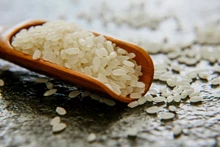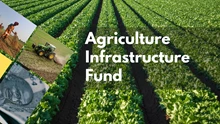
The food we eat not only affects our health but also our environment. The process of growing, rearing, farming, processing, transporting, cooking, and disposing of the food we eat impacts our carbon footprint and contributes to climate change. You might wonder how is food linked with greenhouse gas emissions.
Greenhouse gas emissions come from agricultural practices. For instance, cattle produce copious amounts of methane gas while digesting their food, the expansion of farmland is done by removing the forest cover which increases carbon dioxide emissions, burning crop residue releases noxious gases, and nitrous oxide is released into the environment from fertilizers used during crop production.
Foods that cause the most greenhouse emissions:
Studies indicate that a diet that heavily consists of meat will have twice the carbon footprint of a vegetarian or vegan diet. Meat products have a larger carbon footprint than grains or vegetables because cattle, sheep, and goats release millions of metric tonnes of methane around the world every year.
The Intergovernmental Panel on Climate Change recommends buying less meat, milk, cheese, and butter to reduce your carbon footprint. Changing our diet will not only impact our health but also help save water, reduce pollution, and save forests from deforestation. This is because our diet patterns will reduce the amount of land required to produce invasive foods.
Beef has the biggest carbon footprint. Lamb, farmed prawns, farmed fish, and pork are next on the list. Chicken and eggs have the lowest carbon footprint when compared to other meats. Chocolate bars that are made from cacao harvested from deforested rainforests also have a high carbon footprint. To study the impact of foods on the environment, researchers assessed the amount of land, and freshwater used, and climate-warming greenhouse gases emitted during the production, processing, packaging, transportation, and cooking process.
Eating Habits to Reduce Your Carbon Footprint:
Eat less meat- Studies show that reducing your meat consumption can significantly lower your carbon footprint. This is because cattle, sheep, goats, and pork are the highest contributors to human-induced greenhouse gas emissions. Rather than cutting meat entirely, you can either choose meat that is locally sourced, eat meat only once a week, or eat chicken meat instead.
Avoid plastic packaging- Avoid choosing plastic packaging wherever possible. Single-use plastics are the biggest offenders of land pollution. Do not accept plastic bags and try buying dry goods in your own containers. Store things at your home in proper containers rather than in cling film.
Eat home-cooked meals- Home-cooked meals allow you to take control of the way your food is prepared and how much of it is prepared. You can not only avoid food wastage by planning your meals ahead of time but also incorporate healthier foods into your diet. If you have a large garden, then you can even save the waste and make your compost with it.
Try plant-based protein- Nuts, seeds, legumes, tofu, soybeans, and beans are only some foods that have a significantly lower carbon footprint than meat and are a great source of protein and other vital nutrients. Plant-based protein can drastically cut down your greenhouse gas emissions.
Eat organic foods- Organic farming methods are environmentally sustainable as they reduce the farmers’ dependence on chemical fertilizers and pesticides. Instead, it utilizes animal manure, plant waste, food scraps, meat scraps, and other organic waste to produce compost. It even uses natural methods for weed prevention and pest control. Organic farming practices help with waste management and even increase the soil’s water retention which makes it more resistant to drought-like conditions.










